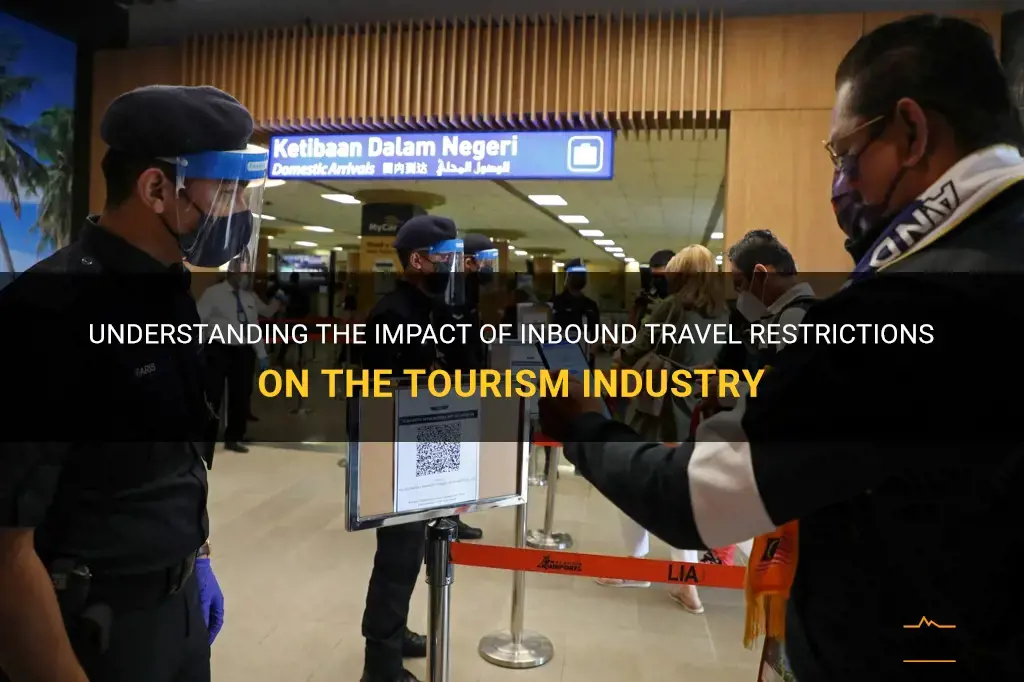
Inbound travel restrictions have become a widely debated topic in recent times, drawing attention from travelers, policymakers, and experts alike. As nations grapple with the ongoing COVID-19 pandemic and its variants, many have imposed strict regulations on incoming travelers to safeguard their population from potential spread. These restrictions, ranging from mandatory quarantine to closed borders, have not only impacted the tourism industry but have also become a symbol of the delicate balance between public health and the necessity of global connectivity. In this era of uncertainty, understanding and navigating these inbound travel restrictions have become crucial for both individuals and businesses alike.
What You'll Learn
- What are the current inbound travel restrictions in place due to the COVID-19 pandemic?
- How are inbound travel restrictions impacting the tourism industry?
- Are there any exemptions to the inbound travel restrictions for certain individuals or groups?
- How are countries deciding when to lift or ease inbound travel restrictions?
- What measures are being taken to enforce and monitor compliance with inbound travel restrictions?

What are the current inbound travel restrictions in place due to the COVID-19 pandemic?
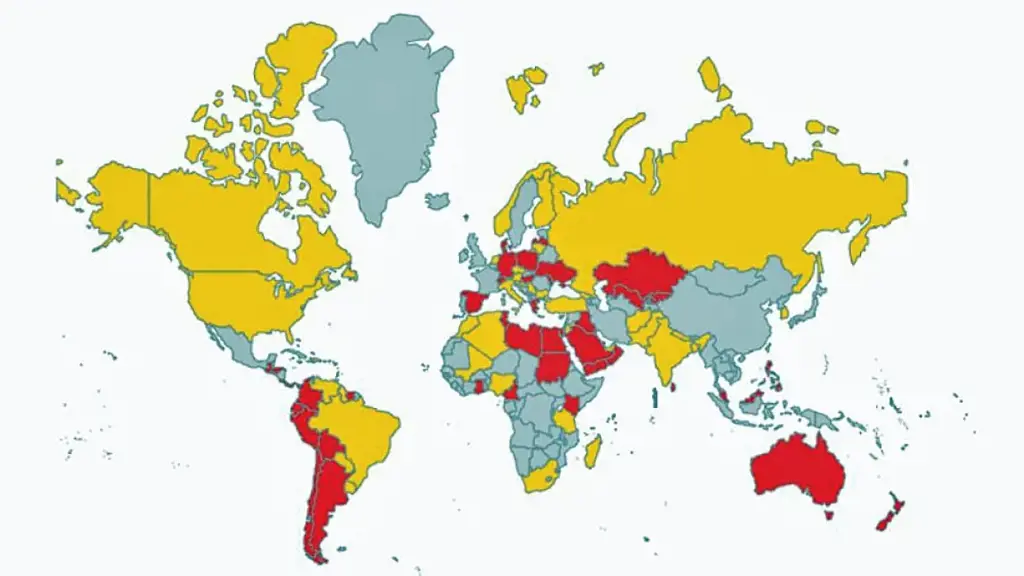
As the COVID-19 pandemic continues to impact countries around the world, many governments have implemented inbound travel restrictions to help control the spread of the virus. These restrictions vary from country to country and are subject to change based on the current situation.
One of the most common inbound travel restrictions is the requirement for travelers to provide a negative COVID-19 test result before being allowed entry into a country. This test is usually conducted within a specific timeframe before travel, such as 72 hours, and may need to be a PCR or antigen test. Some countries also require travelers to complete additional health forms or undergo health screenings upon arrival.
Another common restriction is the implementation of quarantine or isolation periods for incoming travelers. This can range from a few days to several weeks, depending on the country. During this time, travelers are required to stay in designated quarantine facilities or self-isolate in their accommodations. Some countries have also implemented mandatory tracking or contact tracing apps to monitor the movements of incoming travelers.
Many countries have also implemented travel bans or restrictions for individuals coming from certain high-risk countries or regions. These bans can be temporary or long-term and may be based on the number of COVID-19 cases in the origin country or region. It's important for travelers to stay informed about the specific restrictions in place for their intended destination.
It's worth noting that these restrictions can change frequently based on the evolving situation. Travelers are encouraged to monitor official government websites and consult with their travel providers for the most up-to-date information. It's also important to check the entry requirements and travel restrictions of any transit countries the traveler may pass through.
In addition to these inbound travel restrictions, it's important to remember that many countries have also implemented outbound travel restrictions. This means that even if a traveler is allowed to enter a country, they may face difficulties or restrictions when trying to leave or return to their home country.
Overall, the current inbound travel restrictions in place due to the COVID-19 pandemic are aimed at protecting public health and preventing the spread of the virus. It's crucial for travelers to stay informed and follow the guidelines and requirements set by their destination country to ensure a safe and smooth journey.
The Impact of Biden's Air Travel Restrictions: What You Need to Know
You may want to see also

How are inbound travel restrictions impacting the tourism industry?

The tourism industry has been heavily impacted by the ongoing COVID-19 pandemic, particularly with regards to inbound travel restrictions. Many countries around the world have implemented strict measures to control the spread of the virus, including limiting or completely banning inbound travel. These restrictions have had significant consequences for the tourism industry, both economically and socially.
Economically, inbound travel restrictions have led to a major decrease in tourist arrivals, resulting in a sharp decline in revenue for businesses in the tourism sector. Hotels, restaurants, tour operators, and other businesses that rely on tourism have been hit hard by the lack of international visitors. Many of these businesses have had to close down temporarily or permanently, leading to job losses and a decrease in economic activity in tourist destinations.
In addition to the economic impact, there are also social and cultural consequences of inbound travel restrictions. Tourism plays a crucial role in promoting cultural exchange and understanding between different countries and communities. By restricting inbound travel, countries are limiting the opportunities for people to experience different cultures, traditions, and ways of life. This can have long-term effects on cultural diversity and global understanding.
Furthermore, the tourism industry serves as a major source of employment in many countries, particularly in rural and remote areas. Inbound travel restrictions have resulted in loss of jobs for many people working in the tourism sector, including tour guides, hotel staff, and local artisans. This has led to increased poverty and inequality, particularly in places that heavily rely on tourism for their livelihoods.
Despite these challenges, there have been some positive outcomes as well. Inbound travel restrictions have forced the tourism industry to adapt and innovate. Many businesses have shifted their operations online, offering virtual tours, cooking classes, and other experiences that can be enjoyed from the comfort of home. This has provided a lifeline for some businesses and has the potential to open up new avenues for the tourism industry in the future.
In conclusion, inbound travel restrictions have had a profound impact on the tourism industry. The economic, social, and cultural consequences have been significant, with businesses closing down, job losses, and a decline in cultural exchange. However, there have also been opportunities for innovation and adaptation. As the world continues to grapple with the pandemic, it is crucial for governments and the tourism industry to work together to find ways to revive and rebuild the sector, while also ensuring the safety and well-being of travelers and local communities.
Gilpin County Travel Restrictions: What You Need to Know
You may want to see also

Are there any exemptions to the inbound travel restrictions for certain individuals or groups?
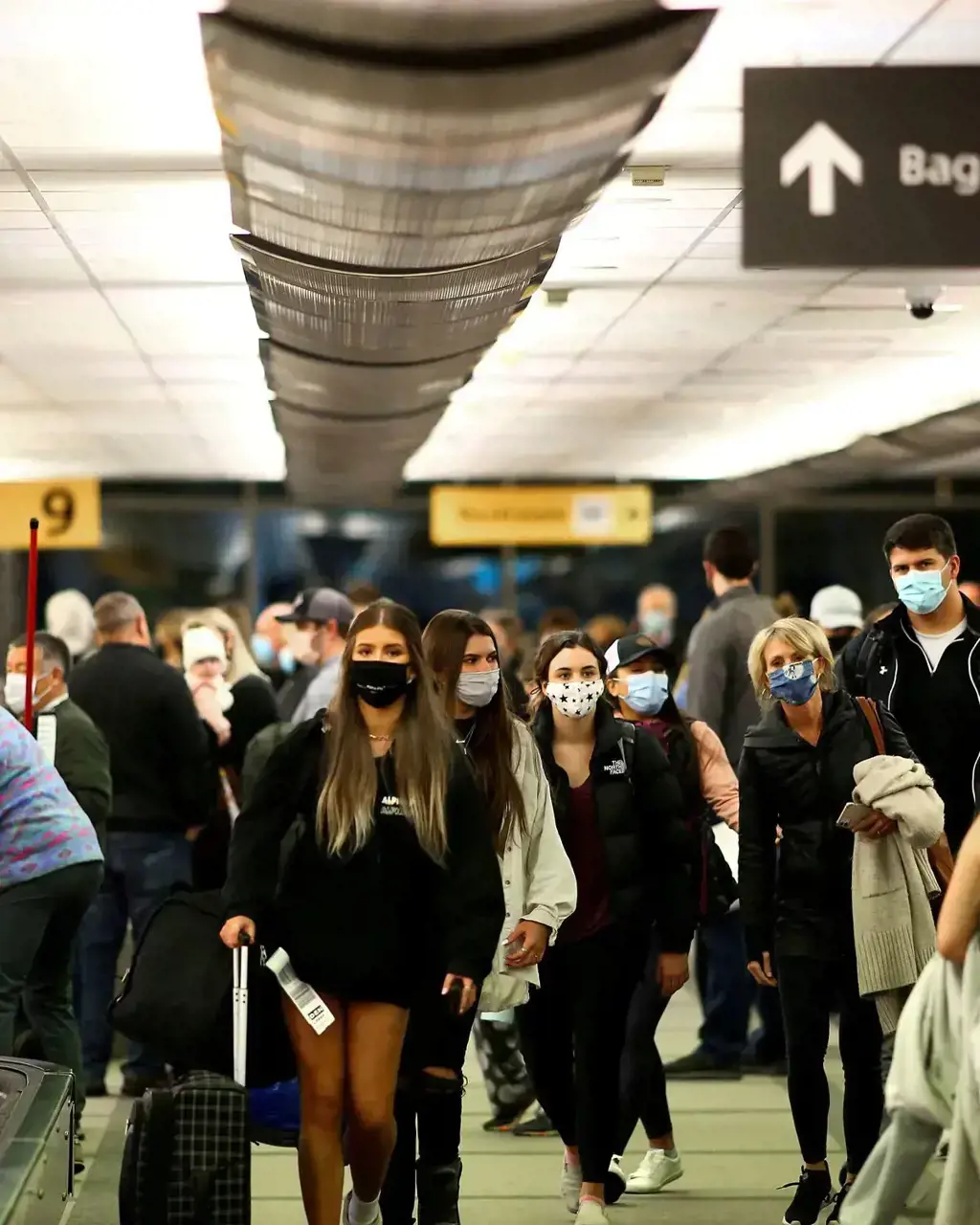
As the world continues to grapple with the ongoing COVID-19 pandemic, many countries have implemented strict travel restrictions to mitigate the spread of the virus. These restrictions typically include limitations on inbound travel, with the goal of reducing the number of new cases being brought into the country. However, there are often exemptions to these rules for certain individuals or groups who are deemed essential or have special circumstances.
One common exemption to inbound travel restrictions is for essential workers. These are individuals who perform critical roles in areas such as healthcare, infrastructure, or public safety. Examples may include healthcare professionals, emergency responders, or workers involved in the transportation or distribution of essential goods and services. These individuals are often exempt from travel restrictions as their presence is necessary to ensure the smooth functioning of vital sectors.
In some cases, governments may also grant exemptions to individuals who have urgent or compelling personal circumstances. This may include individuals who need to travel to receive medical treatment, attend a funeral or visit a critically ill family member. These exemptions are typically assessed on a case-by-case basis, and individuals must provide supporting documentation to prove the urgency or importance of their travel.
Furthermore, governments may also establish travel bubbles or corridors with specific countries or regions. These bubbles allow for restricted travel between jurisdictions that have demonstrated low levels of COVID-19 transmission. Travelers from countries within these bubbles may be exempt from certain travel restrictions, such as mandatory quarantine, as long as they adhere to specific testing and safety protocols.
It's important to note that the criteria for exemptions may vary from country to country. Each government sets its own rules and regulations regarding inbound travel restrictions and exemptions. These rules may be subject to change based on the evolving situation and the prevalence of the virus. It is essential for individuals and groups seeking exemptions to stay informed about the latest updates and requirements.
In conclusion, while most countries have implemented inbound travel restrictions to limit the spread of COVID-19, exemptions are often provided for essential workers, individuals with urgent personal circumstances, and travelers from established travel bubbles. These exemptions are determined on a case-by-case basis and may vary from country to country. It's crucial for individuals seeking exemptions to stay updated on the current regulations and requirements set by the respective governments.
Aeroflot Introduces New Travel Restrictions: What You Need to Know
You may want to see also

How are countries deciding when to lift or ease inbound travel restrictions?
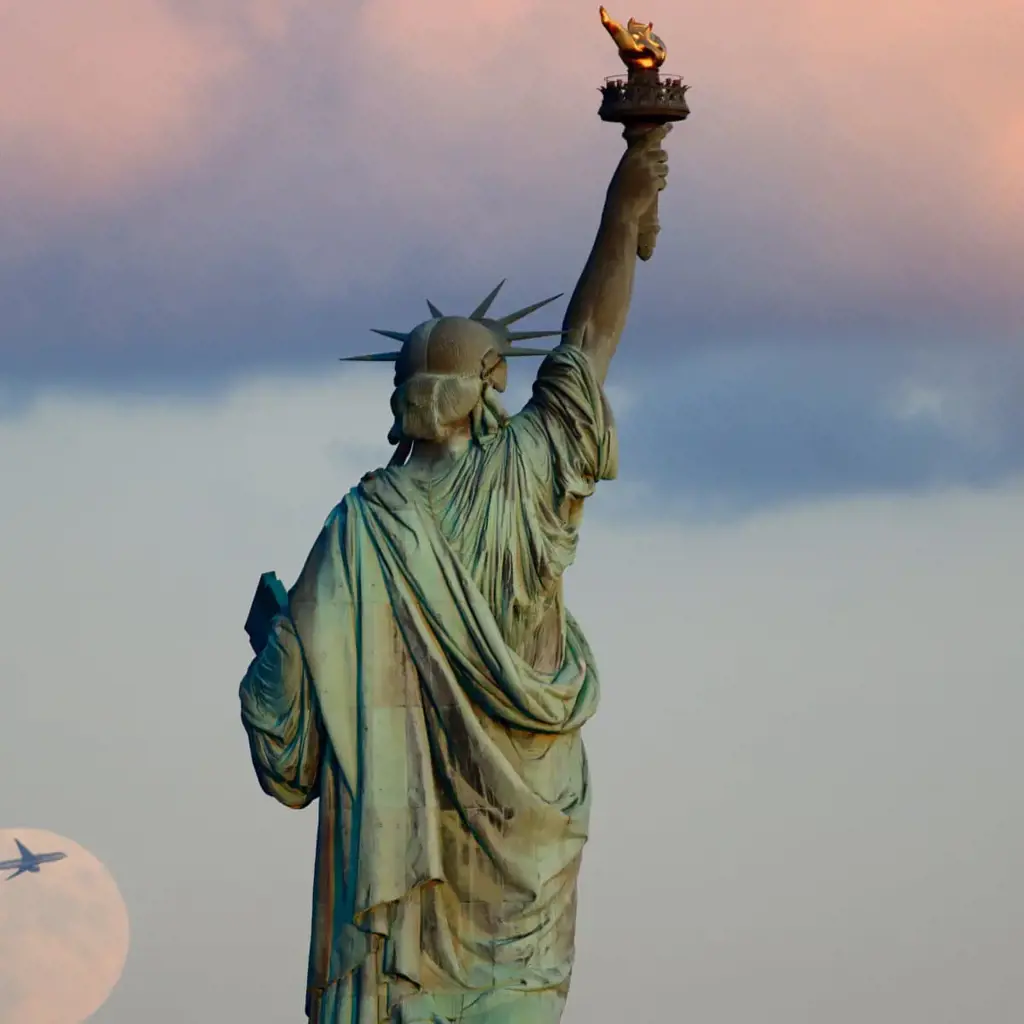
As vaccination rates increase and COVID-19 cases decrease, many countries are considering when and how to lift or ease their inbound travel restrictions. The decision-making process varies from country to country, but there are a few common factors that most countries are taking into consideration.
First and foremost, countries are looking at the current COVID-19 situation, both domestically and internationally. If the country has a low number of cases and a high vaccination rate, they may be more inclined to ease travel restrictions. On the other hand, if there is a surge in cases or new variants of concern, the country may choose to maintain or tighten their restrictions.
Countries are also looking at the vaccination status of incoming travelers. Some countries are considering implementing vaccine passport programs, where travelers must show proof of vaccination in order to enter the country. This not only helps to protect the local population, but it also provides reassurance to potential travelers that they will be safe in the country.
In addition to vaccination status, countries are also considering the origin of incoming travelers. If a country has specific travel restrictions for certain high-risk countries or regions, they may choose to maintain or tighten those restrictions until the situation improves.
Another factor that countries are considering is their own healthcare system's capacity. If a country's healthcare system is already under strain, they may be hesitant to lift travel restrictions as it could lead to an increase in cases and overwhelm the system further.
Finally, countries are also considering the economic impact of inbound travel restrictions. Many countries rely heavily on tourism for their economy, so they are weighing the benefits of allowing travel to resume against the risks of potential outbreaks. Some countries may choose to introduce phased reopening plans, where they gradually ease restrictions to monitor the impact on their healthcare system and economy.
Ultimately, the decision to lift or ease inbound travel restrictions is a complex one that takes into account various factors, including the COVID-19 situation, vaccination status, origin of travelers, healthcare system capacity, and economic impact. Governments are working closely with public health experts and monitoring the situation closely to make the best decision for their country.
IATA Travel Restrictions by Country: Everything You Need to Know
You may want to see also

What measures are being taken to enforce and monitor compliance with inbound travel restrictions?
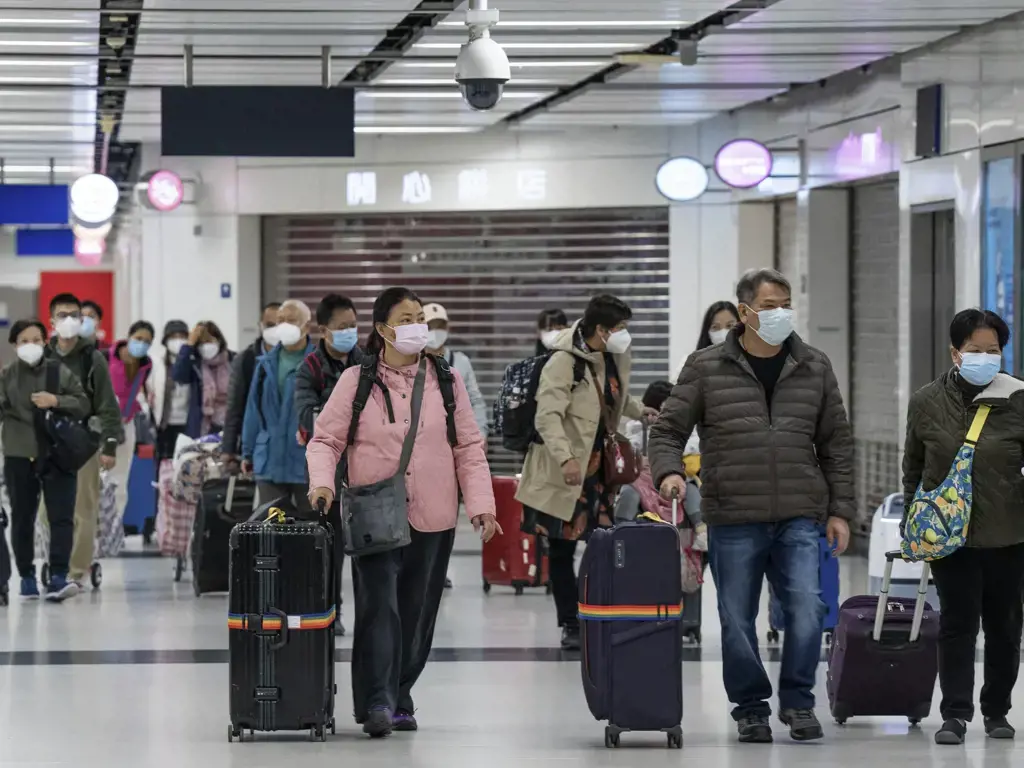
In response to the ongoing COVID-19 pandemic, many countries have implemented inbound travel restrictions to limit the spread of the virus and protect their citizens. These restrictions can vary from country to country, but they generally involve requirements such as COVID-19 testing, quarantine periods, and health declarations. To enforce and monitor compliance with these measures, governments have implemented various strategies and technologies.
One of the most common measures used to enforce travel restrictions is the implementation of border controls. This involves monitoring entry and exit points, such as airports, seaports, and land borders, to ensure that only authorized individuals are allowed to enter or leave the country. Border control officers check travel documents, conduct health screenings, and verify compliance with any additional requirements, such as COVID-19 testing or quarantine.
To further enhance the monitoring of inbound travelers, many countries have implemented technological solutions. For instance, some countries require travelers to complete online health declarations or registries prior to arrival. These electronic systems allow authorities to collect and analyze information about travelers' health status and travel history. They can also be used to issue travel authorizations or generate travel risk assessments based on the information provided.
In addition, many countries have made use of contact tracing technologies to monitor the movement of inbound travelers. These technologies generally involve the use of mobile applications that track individuals' locations and notify them if they have come into contact with someone who has tested positive for COVID-19. By requiring travelers to install these applications or providing them with wearable tracking devices, authorities can ensure that individuals are adhering to quarantine or self-isolation requirements.
To enforce compliance with quarantine or self-isolation measures, governments have implemented various monitoring systems. Some countries require travelers to undergo regular check-ins via phone or video calls to verify that they are at their designated quarantine location. Others may use GPS tracking or electronic monitoring devices to ensure that individuals are staying within the specified boundaries. Failure to comply with these measures can result in fines, penalties, or legal consequences.
Furthermore, collaboration between different government agencies and international organizations is vital to enforce and monitor compliance with inbound travel restrictions effectively. Sharing of information and best practices helps to identify potential risks and ensure consistent enforcement across different jurisdictions. International organizations such as the World Health Organization (WHO) and the International Civil Aviation Organization (ICAO) play a crucial role in providing guidance and coordinating efforts to facilitate safe international travel.
In conclusion, enforcing and monitoring compliance with inbound travel restrictions is crucial to limit the spread of COVID-19. Governments are using a combination of border controls, technological solutions, and monitoring systems to ensure that travelers adhere to the necessary requirements such as testing and quarantine. Collaboration between governments and international organizations is key to effectively implement these measures and protect public health.
Australia to New Zealand Travel Restrictions: What You Need to Know
You may want to see also
Frequently asked questions
Inbound travel restrictions refer to the limitations and regulations imposed on individuals entering a specific country or region. These restrictions vary in their scope and purpose, and may include requirements such as mandatory quarantine periods, pre-travel testing, and limitations on the types of travelers allowed entry.
Inbound travel restrictions are imposed to manage and mitigate the risk of spreading contagious diseases, such as during a global pandemic. By limiting the number of individuals entering a country or region, governments can control and monitor the potential spread of the disease, protect their population, and prevent overwhelming their healthcare systems.
To stay updated on the latest inbound travel restrictions, it is important to regularly check official government websites, such as the websites of your home country's embassy or consulate in the destination country. Additionally, international news sources and reputable travel websites often provide updates on travel restrictions and advisories. It is also advisable to consult with travel agents or professionals who can provide you with accurate and up-to-date information regarding inbound travel restrictions.







